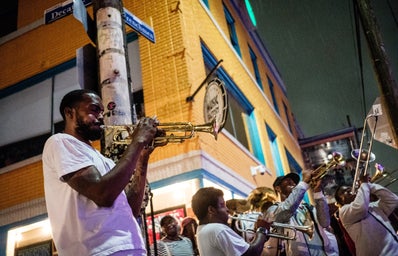I came across the quote “writers are engineers of the human soul”, while reading Goenawan Mohamad’s essay, Pada mulanya adalah komunikasi (“It is Communication at its Core”). Yes, it’s a quote from the Soviet Union leader, Joseph Stalin. He believed that the influence of writers is more powerful than tanks or weapons. However, Mohamad rebukes Stalin’s quote, by claiming that this kind of mindset is how writers disconnect with their readers, in which creators doubt the comprehension ability and political enthusiasm of the audience. In Mohamad’s essay, he questions the use of jargons and abstract languages in (political) writings, and to what extent those literary languages exclude its readers. He brings up another quote, this time by art critic Wang Chao-Wen, who believes that there is a form of exclusivity in using uncommon and hard-to-comprehend terms, where readers become uninterested, leaving them incapable for further discussions. While Stalin, Mohamad, and Wang were referring to political literary works, we are left with the important thought that language transcends words. In it’s own way, music is also a way of communication.
For humans, music is just something we understand. Tapping our fingers, recalling memories, or crying, are just some of the ways in which our bodies and minds respond to music. We don’t always really know why a piece of music makes us feel such a way; because like a native speaker, we never really understand the rules of grammar in our mother tongue—or why a certain word fits better in a sentence—it just makes sense. Though, there are people who play instruments and study music theory, those who can understand music in a more concrete level. I think one thing that bonds this community together is their love for jazz.
Unlike pop music, jazz incorporates a lot of complex rhythms and melodies. Listeners to jazz are often musicians, or those who have long been introduced to the genre, because it is often an acquired taste. Since I was a child, my parents would take me to the Java Jazz Festival, held every year in Jakarta—my home town, and I’ve had my share of mornings with my parents blasting Chick Corea out loud during breakfast. Those songs were always 10 minutes long, with weird melodies and no vocals. I could not understand why my parents liked it or how anyone can stand listening to a song that long. But I picked up my first bass two years ago and started playing, fell in love with it, and began listening to more jazz. I found myself liking those lengthy songs filled with improvised solos, five key changes, and intricate melodies.
Modern jazz-influenced musicians such as Jacob Collier or Snarky Puppy, have fanbases made out of mostly musicians. Many of their songs are long and consists of melodies and rhythms that may be unusual to those who are not familiar with this type of music. When I first listened to Snarky Puppy’s Lingus, the first reaction I had listening to Cory Henry’s solo was, “is this supposed to sound good?” I found out later on, that many would name the three-minute solo as one of his best and applauded the structure and different styles he incorporated. They had used words such as chromaticism, non-diatonic chords, and Phrygian mode, to explain his melodic choices. There’s even a 14 minute video analyzing his solo.
When I first got into jazz, there was this need for me to understand why music is good. I felt left out because I had just started playing bass (not even great at it), never went to jazz school, and cannot for the life of me, understand complex music theory (what the heck is VII7b9#9? Why are chord names so damn long?!). The genre may seem intimidating for many — myself included. In its nature, you require a great deal of musical knowledge and experience to “understand” jazz.
Like the political writings criticized by Wang, there is a sort of exclusiveness that comes with using jargons and strange musical choices in your songs; quite possibly leaving a number of listeners clueless. However what Mohamad concluded in his essay, is that we should not underestimate the audience’s creativity and ability to comprehend works. Jazz has no “manifesto” and takes form in all different kinds of music. Musicians all over the world incorporate Jazz into their own styles, taking inspirations from their cultures into their work. If anything, the lack of barriers in jazz is what makes it so inclusive. Because jazz has no “manifesto” and relies heavily on improvisation and spontaneity, mistakes are embraced and individual styles are celebrated. Audiences should not have to be knowledgeable or capable to be worthy enough to enjoy jazz. Sure, I might not understand why something is structured in a certain way — but I can sure tell when something sounds good to me.


